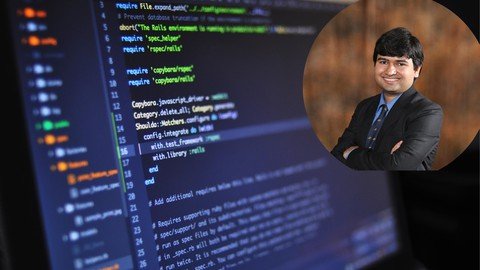
Published 08/2022
Genre: eLearning | MP4 | Video: h264, 1280x720 | Audio: AAC, 44.1 KHz
Language: English | Size: 1.8 GB | Duration: 69 lectures • 4h 26m
Master the basics of Operating Systems, system calls, processes, CPU scheduling from scratch.
What you'll learn
What is an operating system (OS)?
Modern OS functionalities.
Layered design of computing systems.
OS user interface.
What is Protection in OS?
What are kernel and user modes? Why are they needed?
What are system calls? Why are they needed?
What are traps?
What is an application programming interface (API)?
How APIs invoke system calls?
How are system calls implemented?
How are parameters passed to system calls?
Life cycle of program creation
Memory footprint of a program.
What is a process?
What is multiprogramming and multitasking?
CPU Scheduler and process scheduling.
What are the various states that a process goes through?
What is a process control block (PCB)?
When do processes relinquish CPU?
What is a context switch?
CPU scheduling basics and performance metrics.
What are CPU-bound and IO-bound processes?
When would CPU scheduler run?
What is turnaround time and waiting time?
FCFS scheduling.
Shortest job first (SJF) scheduling.
Nonpreemptive priority scheduling.
What is starvation?
Shortest remaining time first (SRTF) scheduling.
Preemptive priority scheduling.
Round robin (RR) scheduling.
Combining scheduling algorithms.
Linux CPU scheduling algorithm.
Programs with multiple processes.
Creating multiple processes in Linux.
Fork system call with illustrative examples.
Interprocess communication (IPC).
Shared memory for IPC.
Message passing for IPC.
Requirements
No previous knowledge about operating systems needed. Everything you need to know about the topics will be covered.
Description
Ace operating systems (OS) principles, system calls, OS protection, processes, CPU scheduling, CPU scheduling algorithms, interprocess communication questions in competitive exams, job interviews, and OS course exams.
Do you know: How OS protects itself from the user programs? How does OS protect user programs from each other? Why can user programs not directly access I/O devices? Why do programmers prefer to use APIs over system calls in programs? How is the CPU shared between so many active processes? How does executing processes create new child processes? How do cooperating processes communicate? Learn the explanations to these and many more intriguing questions in this course!
Specifically, the course will cover the following in detail.
What is an operating system (OS)?
Modern OS functionalities.
Layered design of computing systems.
OS user interface.
Protection in OS.
Kernel mode and user mode.
System calls.
Traps.
Application programming interface (API).
How APIs invoke system calls?
System call implementation.
Parameter passing to system calls.
Life cycle of program creation
Memory footprint of a program.
What is a process?
Multiprogramming and multitasking.
CPU Scheduler and process scheduling.
Process states.
Process control block (PCB).
When do processes relinquish CPU?
Context switching.
CPU scheduling basics and performance metrics.
CPU-bound and IO-bound processes.
When would CPU scheduler run?
Turnaround time and waiting time.
FCFS scheduling.
Shortest job first (SJF) scheduling.
Nonpreemptive priority scheduling.
Starvation.
Shortest remaining time first (SRTF) scheduling.
Preemptive priority scheduling.
Round robin (RR) scheduling.
Combining scheduling algorithms.
Linux CPU scheduling algorithm.
Programs with multiple processes.
Creating multiple processes in Linux.
Fork system call with illustrative examples.
Interprocess communication (IPC).
Shared memory for IPC.
Message passing for IPC.
30 day money back guaranteed by Udemy.
Wisdom scholarships. If you are interested in taking one of our courses but cannot purchase it, you can apply for a scholarship to enroll. Learn more about the application process at my website.
Who this course is for
Anyone interested in learning about operating systems in modern computers could benefit from this course.
Computer science undergraduate students taking an operating systems course could benefit from the course.
You may (optionally) wish to print some of the material.
Homepage
https://www.udemy.com/course/operating-systems-concepts-1/Links are Interchangeable - No Password - Single Extraction



